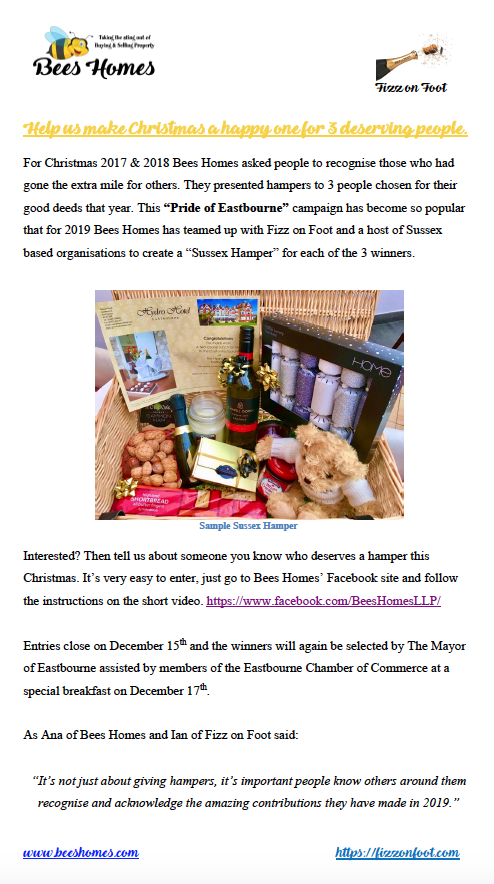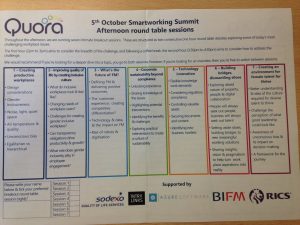Many moons ago before the introduction of GDPR I used to provide a semi annual update of my activities to people who said they were interested in what I was up to. With the requirement to get permissions from the recipients and a book to help complete those updates went to the back of the queue. Over the last few months though much has happened so here are a few reflections.
SmartWorking Summit

It’s Mid October and I’m back in Docklands to attend Quora’s Autumn Smart Working Summit. With attendees focused on work place environments and effective working practices (including genuine diversity) it picked up on a theme I’d heard recently at many Sussex business sessions namely how to manage mental health in the workplace.
It seems that many of us are not happy with our working environment (people get distracted every 3 minutes in an office apparantly) or indeed our managers. And since the young are seemingly ill disposed to stay more than 2 years with any employer the traditional social contract between employer and employee is undergoing a massive shift.
Many of the speakers and contributors from the floor talked about “3rd place working” and the need to curate good environments both physical and virtual. Many bemoaned the use of corporate safaris to see how others set out their space and over lunch a few of us debated the value of floor, meeting or community hosts to facilitate working in hub environments.
Does this matter? Yes! Workplace productivity is down 9% in the last decade in the UK and compares unfavourably with the rest of the world. In a report released in January 2019 by employee engagement organisation Engaging Works the UK ranks 10th in the world for workplace happiness. They note:
“What is perhaps most striking is that eight of the countries which sit ahead of the UK in 10th place also sit above the UK for productivity, where the UK is a global laggard.
From a knowledge sharing perspective this is important. People are more likely to share if they feel engaged and supported yet few I spoke to involved in the design of office environments had knowledge sharing as a critical success factor when designing space. Neil Usher’s excellent Elemental Workplace came to mind at this point.
Selling your business

I had the great pleasure of attending a Masterclass run by BCMS at a rural location in Kent last week. A boutique M&A house they assembled a group of owner businesses to share tips on the process. It was slick and impressive.
A few stats stood out:
- Few companies sell to competitors.
- You need to talk to (interact) with at least 200 potential buyers.
- Traditional valuation methods (DCF / NPV) are a thing of the past, sell based on a mulitple of future earnings as an acquired or merged business.
Underpinning their model is a dedicated research group who maintain what Founding Director Dave Rebbettes described as a massive M&A database. It took me back 25 years to my Corporate Finance days when using search I helped create a knowledge base to tell us what ‘we’ knew about a business, their people and the markets they operated in.
The word “Curate” was used a couple of times to describe how data is assembled but not in the context of managing knowledge. Once again I was left pondering why as I did last year when I wrote: “If so few Mergers & Acquisitions are successful why is Knowledge Management so often ignored?”.
 Post coffee (and chocolate) we were treated to a presentation by Green & Black’s Co Founder Jo Fairley. Jo charted their journey from 1991 when they set the business up in their lounge, disposing of large stake to an investment group, being acquired by Cadbury’s, then Kraft and onto the current owners Mondalez.
Post coffee (and chocolate) we were treated to a presentation by Green & Black’s Co Founder Jo Fairley. Jo charted their journey from 1991 when they set the business up in their lounge, disposing of large stake to an investment group, being acquired by Cadbury’s, then Kraft and onto the current owners Mondalez.
Jo highlighted how post acquisition by Cadbury’s in 2005 the company suffered a loss of knowledge exacerbated by Kraft’s takeover of Cadbury’s. Interestingly Arthur Shelley who was then CKO of Cadbury’s spoke about a similar issue when we interviewed him for “Navigating the Minefield: A Practical KM Companion”.
Recognising the importance of not losing the DNA of the brand, Mondalez have hired Jo as part of an induction process to illustrate the ethical (Fairtrade) historical legacy of the brand for new employees.
I ticked off some key points Jo made in response to a question about 3 things they got right. I was delighted these match Bees Homes top 3 aspirations:
- Great product and branding
- Great customer service
- Capture the testimonials
To which I would add, “Create Brand (chocolate) Ambassadors” to ensure there is conscience in the brand.
Recognition & Awards
In a recent personal reflection the widely respected Euan Semple noted:
… the stress of working with different businesses all the time is getting to me… So what to do? I don’t feel inclined to start marketing myself for the consulting and speaking. I never really did. I wrote stuff, people read it, and work came in. I am not even really sure why this has changed. But I am not sorry.
The outpouring of suportive comments on Facebook and LinkedIn must have been rewarding to Euan for ‘putting it out there”. Why does it take something like that though for people to acknowledge and recognise contributions made by others? As many of you will know since 2012 I’ve included a section on my site Who I admire (and why). In it I recognise people I’ve worked alongside who’ve shaped the way I think and act.
In August I wrote about Dr Gada Kadoda from Khartoum who helped found the Sudanese Knowledge Society. I was delighted the BBC recently recognised her as one of the “top 100 women of 2019 for her work in rural communities.”
 Continuing the recognition theme Bees Homes, one of the businesses I helped set up and run, has since inception led an annual Pride of Eastbourne” campaign at Christmas.
Continuing the recognition theme Bees Homes, one of the businesses I helped set up and run, has since inception led an annual Pride of Eastbourne” campaign at Christmas.
We encourage people to nominate those they feel deserve recognition for the good they’ve done for others. The winners, chosen by the Mayor and Chamber of Commerce members, each receive a Sussex Hamper which the nominator presents.
While on the subject of awards I was humbled to receive this email a few months back from the Walford Prize judging panel. The award is given each year to a person deemed to have made a significant contribution to the field of Knowledge & Information Management:
The judging panel were most impressed by your energy and enthusiasm and complete commitment to spreading the word about knowledge and information management not only in the UK but worldwide.
I pick up the award alongside KM luminaries Patrick Lambe and Nick Milton (winners of the best book for their Knowledge Manager’s Handbook) at a ceremony next week.
And finally
I wanted to share my response to Euan since it reflects where I am today after 20 years running a portfolio of activities:
On the subject of travelling I will end this update with something Jo Fairley said about how to run a successful business.
Look at the business through a microscope and a telescope!
Now off to do just that!

 The afternoon comprised a series of breakout sessions. I went for the “Creating productive workplaces” session facilitated by John Blackwell, Quora’s founder and CEO.
The afternoon comprised a series of breakout sessions. I went for the “Creating productive workplaces” session facilitated by John Blackwell, Quora’s founder and CEO.
 their working practices and environment. One metric they are using: reduce occupancy levels (from 100% usage of the office by their staff to the mid 70’s).
their working practices and environment. One metric they are using: reduce occupancy levels (from 100% usage of the office by their staff to the mid 70’s).
Euan Semple you and I have talked before about having a portfolio of activities where a thin red line or thread connects everything you do. I know many people who’ve taken a jump from the security of a “day job” to being in what today is known as the gig economy. And in the majority of cases they are more fulfilled emotionally if less financially enriched. I’ve watched your journey from corporate to ‘consultant’ to ‘traveller’ with admiration. I’ve always believed that people are judged by the stories others tell about them. You’ve spawned many. Keep travelling!